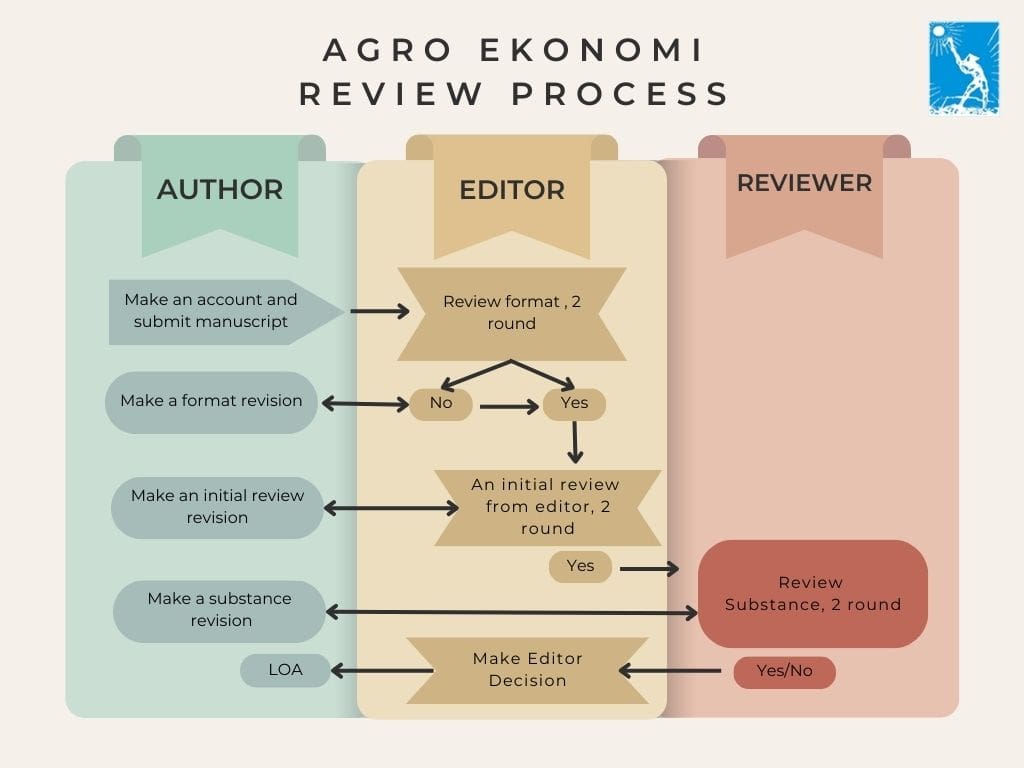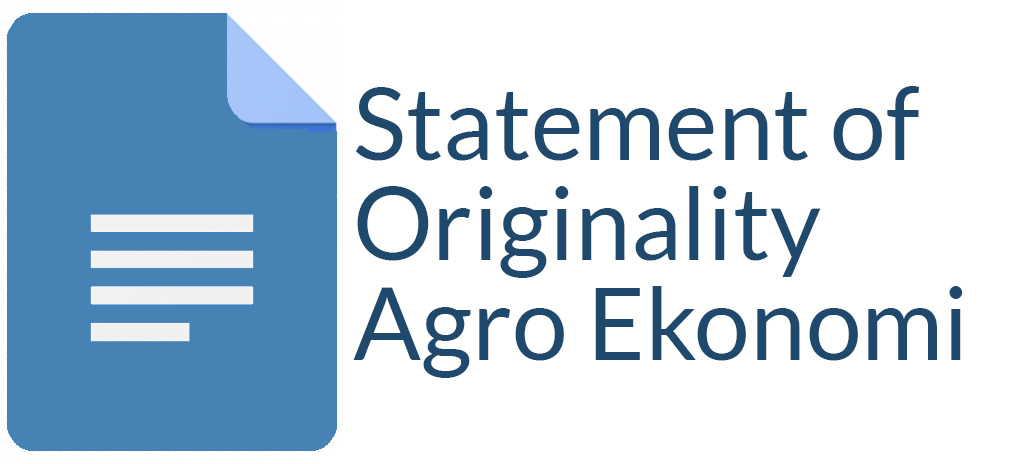THE ROLE OF MULTI-MEDIA APPROACH INI NARROWING THE KAP-GAPS AMONG THE FARMERS OF THE STRATEGIC EXTENSION CAMPAIGN IN MUDA IRRIGATION SCHEME
Ageng Setawan Herianto(1*)
(1) Department of Agricultural Socio-Economics, Faculty of Agriculture GMU Indonesia
(*) Corresponding Author
Abstract
The KAP-survey results as the secondary data of the study, was the benchmark data of the before campaign study. Data of the after campaign study were gathered by means of personal interview with 189 farmers using the structured questionnaire.
Findings reveal that KAP-level of both farmers with low and high-SES farmers on the technology of BPH control management had increased after the multi-media campaign. However, the multi-media approach of SEC had narrowed the KAP-gaps of these farmers. Therefore, the study found that the multi-media approach of the SEC is the appropriate approach in narrowing the KAP-gaps among the farmers.
Full Text:
PDFReferences
B.K.L. Genova, B.S. Greenberg, Interest in News and Knowledge, 1979
C. Gaziano, The Knowledge Gap: An Analytical Review of Media Effects: communiacation research journal, 1983
D. Moore, Political Campaigns and the Knowledge-Gap Hypothesis, 1987
E.M. Rogers, Diffusion of Innovations, 1983
E.M. Rogers, New Perspective on Communication and Development: Overview. In Rogers, E.M (Ed). Communication and Development: Critical Perspective, 1976
F. Zandpour, A.R. Fellow, Knowledge Gap Effects: Audience and Media Factors in Alcohol-Related Health Communications, 1992
I.S. Ettema, F.G. Kline, Deficit Differences and Ceilings: Contingent Conditions for Understanding the Knowledge Gap, 1977
J. Servaes, To ward an Alternative Concept of Communication and Development, 1985
J.R. Finnegan, K. Viswanath, P.J. Hannan, R. Weisbrod, D.R. Jacobs, Message Discrimination: A Study of Its Use in a Campaign Research Project, 1989
K. Viswanath, E. Kahn, J.R. Finnegan, J. Hertog, J.D. Potter, Motivation and Knowledge Gap: Effect of a Campaign to Reduce Diet-Related Cancer Risk, 1970
M.M. Escalada, K.L. Heong, Communication and implementation of Change in Crop Protection. Crop Protection and Sustainable Agriculture, 1993
N.P. Lovrich, J. Pierce, Knowledge Gap Phenomena: Effect of Situation-Specific and Transsituational Factors, 1984
Nai-Kin Ho, Md. Zuki Ismail, Asna Booty Othman, The Implementation of Strategic Extension Campaign on Integrated Weed Management in the MUDA area, Malaysia, 1990
Nai-Kin Ho, Zainuddin Zakaria, Badrun, Guan-Huat Yeah, Results, Benefits and Lessons Learned From Planning, Implementing and Evaluating Strategic Extension Campaign (SEC) Activities in the Muda Area, Malays, 1996
P.F. Connell, Sustainable Agriculture, 1991
P.J. Tichenor, G.A. Donohue, C.N. Olien, Mass Media flow and differential growth in knowledge, 1970
R. Adhikarya, Strategic Extension Campaign: A Participatory-oriented method of agricultural extension, 1994
R.C. Hornik, The Knowledge Behaviour Gap in Public Information Campaign: A Development Communication View, 1989
S. Melkote, Communication for Development in the Third World: Theory and Practice, 1991
Article Metrics
Refbacks
- There are currently no refbacks.
Copyright (c) 2016 Agro Ekonomi

This work is licensed under a Creative Commons Attribution-ShareAlike 4.0 International License.
View My Stats











